Point of Sale Systems for Bakeries: A Comprehensive Guide
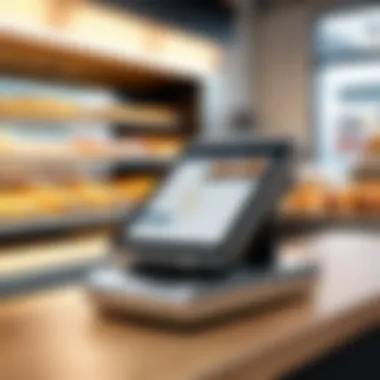
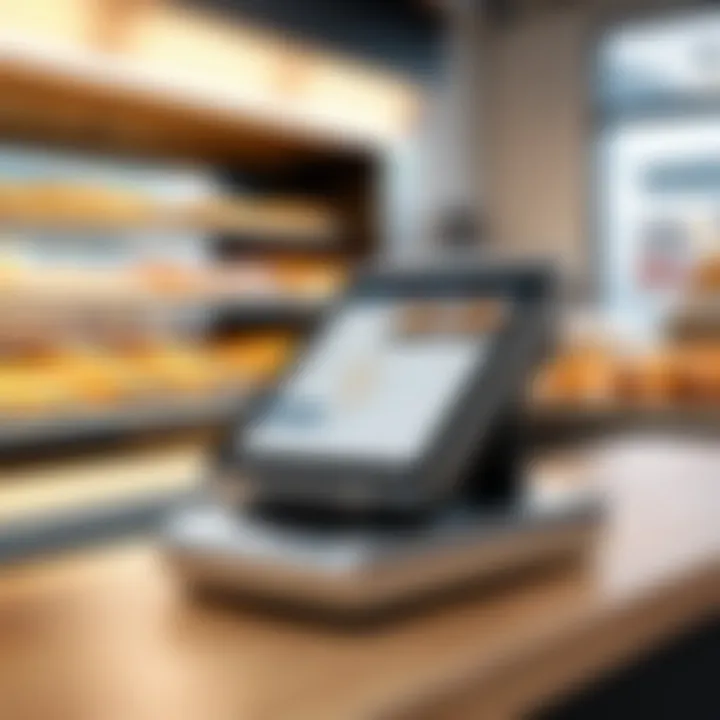
Intro
In the bustling world of bakeries, where the aroma of fresh pastries fills the air and the sweet sight of colourful cakes entices customers, an efficient operation can make or break a business. Enter the point of sale (POS) system, a foundational element in modern bakeries. These systems do much more than simply ring up sales; they revitalize the interaction between staff and customers, streamline inventory management, and provide valuable insights into financial health. Understanding how these systems function and how they can be tailored specifically to the unique dynamics of bakeries is crucial for anyone involved in the bakery business.
Overview of Core Features
When considering the best POS systems, it becomes apparent that certain functionalities stand out as essential. Here’s a breakdown through which we’ll explore what makes these systems tick in a bakery context.
Description of Essential Functionalities
A functional POS system for bakeries typically encompasses several core features:
- Sales Management: A good POS allows for quick, efficient sales processing. Whether it’s a single muffin or a grand wedding cake, the system should handle diverse items flexibly.
- Inventory Tracking: Keeping tabs on ingredients and finished products is vital. This feature not only prevents stockouts—which can be a nightmare during busy hours—but also helps in managing waste by tracking product lifespans.
- Customer Relationship Management (CRM): Understanding your customers is a big plus. A bakery POS can track purchases, preferences, and even birthdays to enhance personal marketing efforts.
- Report Generation: Regular sales reports, customer trends, and inventory turnover insights are essential for strategic decision-making. More than just numbers, these reports should tell the story behind the sales.
Comparison of Features Across Top Software Options
Comparing notable POS solutions can help decision-makers identify the best fit for their needs. Software like Square for Restaurants, Toast, and Lightspeed are popular among bakery owners. Here are some distinctions:
- Square for Restaurants balances simplicity with powerful features; it's popularly praised for its no monthly fees.
- Toast shines when it comes to detailed reporting and inventory management tools specifically designed for food businesses, offering more complex integrations.
- Lightspeed stands out due to its accessibility and dynamic interface suited for startups and established bakeries alike.
With each system presenting its strengths, choosing the right one often involves aligning features with business objectives.
User Experience and Interface
Insights into UI/UX Design Aspects
In today’s fast-paced retail environment, user experience can make a significant difference. A sleek, intuitive interface can help staff operate the system with ease, which is especially critical during the busy morning rush.
- Design Simplicity: Systems should employ straightforward navigation; a clean interface frees the employees to focus on serving customers rather than wrestling with the software.
- Mobile Access: Many current POS systems offer mobile functionalities, allowing for flexibility in service—be it taking orders at the table or managing inventory on the go.
Importance of Usability and Accessibility
The system's usability directly impacts staff training and retention. A convoluted system can frustrate staff, leading to longer training times and dissatisfaction. Moreover, accessibility options for all staff and customers—like voice commands or larger fonts—underpin a bakery’s commitment to inclusivity, allowing it to cater to a broader audience.
"A good POS system is like a well-baked loaf; it should be sturdy, reliable, and leave a lasting impression."
In closing, the selection of a POS system tailored for bakeries isn't merely a technical decision—it's a foundational choice that shapes customer experiences and operational efficiency. Understanding the functionalities and user interfaces of these systems can empower bakery owners to elevate their business to new heights.
Preamble to Point of Sale Systems
Understanding point of sale (POS) systems is crucial for anyone involved in the bakery business today. As the bridge between the customer experience and operational efficiency, these systems are designed to facilitate transactions and provide essential business insights. They don't just ring up sales; they are a powerful tool that can help bakeries thrive in a competitive market.
Overview of POS Systems
A POS system is essentially the nexus where sales and business intelligence converge. At its core, a POS system typically includes hardware like cash registers, card readers, and touch screens, alongside software that manages sales, tracks inventory, and analyzes customer data. The beauty of these systems lies in their adaptability. While the fundamental purpose remains the same, the specific features and functions can vary broadly based on industry needs.
- Hardware Components: Cash drawers, barcode scanners, receipt printers, and touchscreen interfaces.
- Software Functions: Sales tracking, inventory management, customer management, and reporting tools.
- Integration Capabilities: Ability to connect with other platforms like e-commerce sites and payment gateways.
The flexibility makes it viable for bakeries of different sizes—whether a quaint local shop or a larger chain, there’s a POS solution that fits the bill.
Importance of POS in Bakeries
For bakeries, a tailored POS system does not merely streamline transactions; it enhances overall operations and strengthens customer relationships. By integrating various functions, these systems help bakers manage everything from ingredient sourcing to final sales with ease.
Consider the following benefits of employing a POS system in a bakery:
- Efficiency: Streamlining the checkout process can reduce wait times, making customers happier.
- Inventory Control: Accurate tracking of ingredients helps to minimize waste and optimize the supply chain, ensuring that fresh items are always available.
- Sales Insights: Understanding customer preferences is a game-changer. Tailored promotions or menu adjustments based on sales data can significantly boost revenue.
- Customer Relations: Building a database of regulars allows bakeries to offer loyalty rewards and personalized experiences.
"A point of sale system acts not just as a cashier, but as a business advisor, providing invaluable insights that can drive bakery success."
In summary, the introduction of a solid POS system in bakeries is an investment, not just in technology but in their overall business strategy. It empowers owners to make data-driven decisions, ensuring they stay ahead of the curve in an ever-evolving industry.
Core Features of Bakery POS Systems
The sophistication of Point of Sale (POS) systems in bakeries is not just about swiping cards or ringing up pastries. It's about leveraging technology to enhance every facet of the bakery's operations. Each feature of a POS system plays a vital role in ensuring bakeries not only meet customer expectations but also thrive in a competitive market. Below, we will unpack the essential components that make bakery POS systems indispensable.
Sales Tracking Capabilities
For any bakery, understanding sales trends is akin to having a roadmap for future growth. With robust sales tracking features, bakery POS systems allow owners to gain insights into daily, weekly, and monthly performance metrics. This functionality isn't just numbers on a screen—it's data that can shape inventory orders, adjust staffing levels, and even inspire new product offerings.
Imagine a bakery that begins to notice spikes in sales every Friday. By tracking these patterns, the owner can prepare for increased demand, perhaps by baking a few extra loaves of sourdough. It's this proactive approach to sales that can help maintain customer satisfaction and drive revenue.
Inventory Management Functions
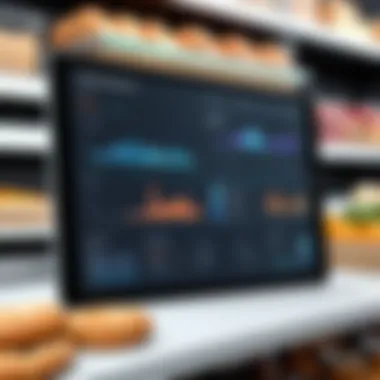
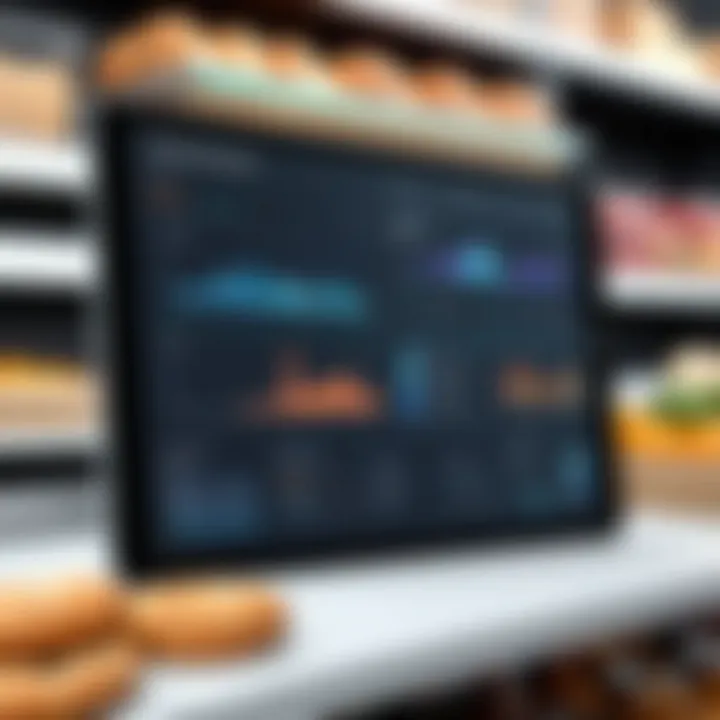
Managing ingredients effectively is critical in the bakery business. An efficient inventory management function integrated into a POS system keeps tabs on stock levels, expiry dates, and usage rates of all ingredients. This means no more scrambling for flour just before the morning rush. Instead, bakers can automate orders when stock dips below a specified threshold, ensuring the pantry remains well-stocked without overbuying.
Additionally, having a real-time inventory overview aids in meticulous menu planning. If chocolate supplies are running low, the bakery can pivot to highlight vanilla éclairs or fruit tarts until fresh stock arrives. The flexibility can help drive profitability while minimizing waste—which is a win-win in any business.
Customer Relationship Management
A successful bakery isn't just about selling goods; it’s about building a community of loyal customers. This is where Customer Relationship Management (CRM) features come into play. By tracking customer preferences, purchase histories, and feedback, bakery POS systems allow for a tailored service experience.
For instance, if a customer frequently buys gluten-free pastries, the system can flag this and ensure that inventory is geared toward more gluten-free options. Additionally, birthday reminders and loyalty programs can effectively engage customers, ensuring they feel valued and encouraged to return.
Reporting and Analytics Tools
In a dynamic market, it’s crucial to understand not just what happens, but why it happens. The robust reporting and analytics tools of a bakery POS system deliver nuanced insights into performance metrics. Managers can delve into sales data segmented by time, product, or even specific promotions to evaluate strategies in real-time.
For example, after running a marketing campaign for a new pastry, bakery owners can analyze the effectiveness by comparing sales figures before and after the promotion. This allows informed decisions to be made about future marketing efforts, ultimately aligning products with customer expectations.
"The right POS system can transform how bakeries operate, providing clarity in chaos and insights that drive profitable decisions."
Armed with these insights, bakery owners can fine-tune their operational strategies, ensuring they remain ahead of the curve.
In summary, the core features of bakery POS systems—sales tracking, inventory management, customer relationship management, and reporting tools—work together to create a comprehensive solution that empowers bakeries to operate smoothly and profitably. The clever use of these features can distinguish between merely surviving and truly thriving in the bustling world of baked goods.
Choosing the Right POS System for Your Bakery
Choosing the right point of sale (POS) system for your bakery isn’t just a matter of convenience; it can truly make or break your operations. The bakery landscape is unique, characterized by varied product offerings, customer preferences, and often bustling environments. A well-chosen system serves as a backbone to smooth out day-to-day operations while boosting efficiency and enhancing customer satisfaction. Understanding what you need from a POS system, factoring in budgetary constraints, exploring software and hardware options, and ensuring ongoing support are crucial steps that no baker should overlook.
Assessing Your Bakery's Needs
Your bakery's specific needs can vary greatly depending on several factors—size, location, and customer volume being key elements. Start by considering:
- Sales volume: Do you experience peaks at certain times of the day? Understanding when your busiest periods occur will help ensure the system can handle high traffic smoothly.
- Menu complexity: If you offer a plethora of baked goods or seasonal items, look for a system that allows for easy updates and modifications.
- Special needs: If your bakery offers special orders or subscription services, ensure the POS can accommodate those functions.
Once you map out these specifics, you can narrow down systems that best align with your operational style.
Budget Considerations
Budget plays a significant role in the selection of a POS system. You might be tempted to go for the most feature-rich option, but those bells and whistles can lead to hefty costs. Here’s what to keep in mind:
- Initial setup costs: Look for the full picture, which includes hardware, installation fees, and training. Remember that cheaper systems sometimes come with hidden fees.
- Ongoing expenses: Subscription fees, maintenance, and transaction fees vary by provider. Some systems may offer a low upfront cost but charge high monthly rates. Pay close attention to terms before signing any contract.
- Return on Investment (ROI): Analyze the potential benefits. A slightly pricier system that significantly improves efficiency and customer satisfaction could offer a better ROI.
Evaluating Software and Hardware Options
Evaluating both software and hardware options can seem daunting, but breaking it down can clarify choices. When considering software, think about:
- Usability: You want a system that your staff can navigate easily under pressure. A complicated interface might hinder efficiency when the line starts to build.
- Integration with existing tools: Ensure that your POS integrates well with other systems like accounting software, inventory management, or social media tools. This can help streamline your operations.
- Scalability: As your bakery grows, so do its needs. Choose software that allows you to add features or expand functionality without a hitch.
On the hardware front, consider:
- POS terminals: Touchscreen systems can improve speed at checkout.
- Peripheral devices: These include receipt printers, barcode scanners, and cash drawers. Ensure compatibility with existing systems.
- Mobility: Tablets or mobile POS options might be suitable for busier environments or outdoor setups.
Understanding Support and Upgrades
Keeping your POS system running smoothly is a continuous endeavor. Understanding the support options available is critical. Here are key aspects to consider:
- Customer support: Investigate the vendor's support availability. Is it 24/7? This could make a difference if your system goes down during peak hours.
- Training resources: Offerings like tutorials or on-site training can help staff adapt quickly. Some vendors might provide more extensive training programs than others.
- Upgrades and updates: As technology evolves, so will your bakery’s needs. Ensure that the system you choose receives regular updates and offers easy upgrades when new features are needed.
A well-suited POS not only improves efficiency but also enriches the overall customer experience, driving repeat business and enhancing your bakery’s reputation.
Navigating the maze of available POS solutions can feel overwhelming, but by focusing on your specific needs, budget, and support structure, you set the stage for a choice that will ultimately aid your bakery's growth and success.
Integrating POS Systems with Bakery Operations
Integrating a point of sale system with bakery operations is crucial for maintaining efficiency and enhancing customer service. A well-implemented POS system can create a seamless workflow among different facets of a bakery, from sales to inventory management. This integration ensures that every aspect of the bakery runs smoothly and is responsive to the needs of both customers and staff.
Streamlining the Checkout Process
When it comes to the checkout experience, time is often of the essence. A POS system designed for bakeries can significantly reduce wait times at the register. Here’s how:
- Fast Transactions: Modern POS systems allow for quick scanning of barcodes or entry of product codes, expediting the checkout process.
- Multiple Payment Options: With the ability to accept various payment methods like credit cards, mobile wallets, or contactless payments, customers are more likely to complete a purchase without a hitch.
- Order History: POS systems store transaction data, enabling fast lookups of past orders which can simplify repeat purchases.
Implementing these functionalities means customers are less likely to get frustrated during busy periods, contributing to a more pleasant shopping experience.
Connecting to Online Ordering Platforms
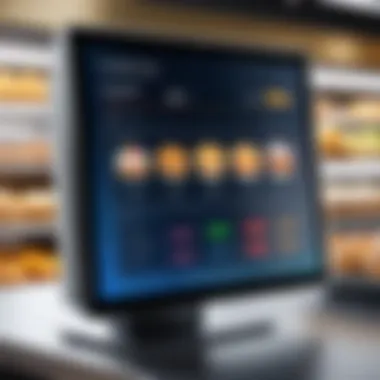
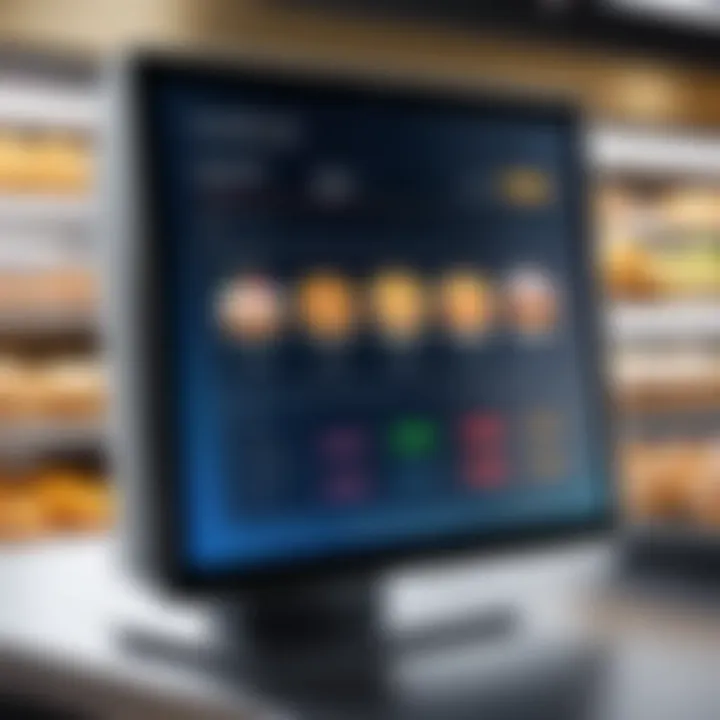
In today’s technologically driven world, many customers are leaning towards online ordering. Integrating your POS system with online platforms allows bakeries to expand their reach. Consider the following advantages:
- Real-Time Inventory Updates: When an item sells online, the POS system updates inventory instantly, reducing the risk of overselling a product.
- Unified Sales Data: Having all sales data in one place can help identify trends and customer preferences, guiding future marketing and inventory decisions.
- Increased Convenience: Customers value convenience. Being able to place orders online can lead to increased sales and customer satisfaction.
Managing Staff and Scheduling
A bakery operates on the backs of its team, making efficient staff management vital. POS systems can aid tremendously in this area:
- Scheduling: With integrated scheduling features, managers can easily allocate shifts based on peak hours identified through sales data. This ensures that the bakery is adequately staffed when it’s most needed.
- Performance Tracking: Many POS systems can offer insights into individual staff performance, helping managers identify who excels in sales or customer service.
- Communication Tool: Good communication among staff members is essential in a bakery, especially during busy hours. A POS system can facilitate quick updates or information sharing.
Integrating these elements effectively not only boosts operational productivity but also fosters a more satisfying workplace environment, ensuring that your team is motivated and engaged.
“Integrating a POS with your operational workflow is not just about hardware and software; it’s about creating harmony in the bakery environment.”
In sum, a bakery that integrates a POS system adeptly can experience marked improvements in customer satisfaction, operational efficiency, and employee morale. As such, this integration is not merely beneficial; it can be a transformative aspect of running a modern bakery.
Benefits of Implementing a POS System
When it comes to running a bakery, making smart and informed decisions can mean the difference between success and simply getting by. Implementing a point of sale (POS) system can provide various benefits tailored specifically for bakery operations. Understanding these advantages is critical for decision-makers who wish to elevate both operational effectiveness and customer satisfaction.
A well-chosen POS system acts not just as a cash register, but as a comprehensive framework integrating various aspects of the bakery’s operations. This guides bakers and managers toward more informed strategies that can drive both revenue growth and client retention.
Enhanced Customer Experience
In today’s fast-paced world, customer experience can make or break a business. A robust POS system can streamline interactions and ensure that customers leave your bakery with a smile. Imagine customers placing orders with just a touch on a screen, viewing product images, or alerting staff about their dietary restrictions—all from their fingertips.
Additionally, personalized service is within reach. With history tracking features, employees can access previous orders of loyal customers, suggesting enticing options based on past purchases. This makes interactions feel tailored, rather than routine. The quicker transaction times from an intuitive interface reduces wait times, ensuring customers get the fresh-baked goodness they crave without unnecessary delays.
"An efficient POS system is like having a Swiss Army knife behind the counter; it’s multifaceted and enhances the customer experience in ways one might not even notice until they have it."
Increased Operational Efficiency
Another noteworthy benefit is the overall enhancement of operational efficiency. Many bakery owners may find themselves juggling multiple systems—one for sales, another for inventory, and maybe even a separate spreadsheet for tracking staff hours. This scattered approach can lead to confusion and errors, draining valuable time and resources.
When you implement a single, unified POS solution, all aspects of the bakery can be managed from one platform. For example:
- Inventory Management: Track stock levels in real-time, ensuring popular items don’t run out when customers are eager to buy them.
- Sales Reporting: Instantly generate sales reports to identify peak hours for staffing adjustments, optimizing labor costs.
- Employee Scheduling: Streamline the management of staff hours and shifts, which helps improve morale as well as performance.
In a nutshell, rather than running around like a headless chicken, bakery staff can focus on what really matters: creating delicious treats and providing outstanding service.
Improved Financial Management
Last but certainly not least, implementing a POS system can drastically improve financial management. In a world filled with expenses, understanding cash flow is essential for any bakery owner. A good POS system can offer detailed financial insights, making it much easier to track revenue, expenses, and overall profitability.
This financial clarity means that bakeries can make informed decisions about pricing strategies and cost-saving measures. Integrated financial reporting also allows for better budgeting by outlining where money is being spent and where profit margins can be improved.
Furthermore, some systems even offer automatic bookkeeping features, simplifying tax preparation. No more sorting through mountains of receipts and invoices come tax season. The system handles it all, leaving bakery owners free to focus on their core business functions.
Common Challenges in POS Implementation
Implementing a Point of Sale system in a bakery is not as straightforward as one might think. While these systems are designed to streamline operations and enhance customer experiences, they come with their own set of hurdles. Understanding these challenges can help bakery owners prepare effectively and mitigate potential pitfalls. Let's dive into the intricacies of these common challenges that can masquerade as roadblocks in the implementation journey.
Resistance to Change
One of the biggest hurdles faced by bakeries when adopting a new POS system is the resistance to change from staff and management. Many employees, especially those who have been in the business for years, may be accustomed to traditional methods. The thought of switching to a digital system can induce anxiety, leading to pushback.
It’s essential to create an environment where team members feel valued in the transition. Involving them early in the discussion may ease concerns—allowing them to voice their opinions and discover benefits together can foster buy-in. Explaining how a POS system can reduce mundane tasks and empower them in their roles can make quite the difference. Addressing these fears head-on can turn skeptics into advocates.
Data Migration Issues
Another challenge that bakeries often face is data migration issues. Moving existing data from older systems to a new POS can seem like a daunting task. There's a risk of data loss or corruption during this phase, which can lead to duplicate entries or, in worst-case scenarios, a complete loss of important information.
Proper planning is key here. Before you jump into the migration process, ensure that all data is cleaned up and organized. Conducting thorough audits to verify the accuracy of the data can save a ton of headaches later. It might also be wise to consult with IT professionals or experts who specialize in data migration. A well-executed migration plan not only preserves data integrity but it also sets the stage for a smoother transition into the new POS environment.
Training Staff
Lastly, training staff is another important element in the successful implementation of your POS system. Even the most robust system won't be effective if employees don't know how to use it properly. New interfaces, software functions, and even hardware components can be very different from what they’re used to.
Training should be structured yet engaging, perhaps utilizing hands-on demonstrations or interactive sessions. Create a training schedule that accommodates various skill levels within the team. Consider appointing a dedicated super-user among your staff—this person can serve as a go-to resource for others, helping to bolster confidence in using the new system.
To sum up, overcoming these challenges isn't just about tackling obstacles but instead understanding their root causes, preparing for them, and paving the way for a positive transition. By addressing resistance to change, planning for effective data migration, and implementing comprehensive staff training, a bakery can turn its POS system into a powerful ally rather than a frustrating barrier.
"A good POS system is a key ingredient in the recipe for bakery success."


End
Future Trends in Bakery POS Systems
As the bakery landscape evolves, so do the tools we use to navigate it. This section examines the emerging trends characterizing the future of point of sale systems in bakeries. Staying attuned to these shifts is not just beneficial, but essential for maintaining a competitive edge. With advancements in technology, bakery owners can leverage new features to enhance efficiency, customer satisfaction, and overall business growth.
Mobile Payments and Contactless Transactions
In a world that increasingly favors convenience, mobile payments have become more crucial than ever. Customers now expect to make transactions using their smartphones or contactless cards. This trend goes beyond mere convenience; it fosters a seamless customer experience.
In practical terms, adopting mobile payment solutions allows bakeries to:
- Reduce checkout times, minimizing lengthy lines.
- Provide payment flexibility, which is a win-win for both the customer and the bakery.
- Attract tech-savvy clientele who prefer using their mobile devices over cash or traditional credit cards.
Furthermore, the rise of contactless transactions cannot be underestimated. The introduction of NFC (near-field communication) technology has made transactions not only faster but also safer. Clients tap their card or phone, and voilà, the payment processes without any physical contact—ideal in today's health-conscious climate.
"Prioritizing mobile and contactless systems in a bakery can transform the customer experience, creating a more inviting atmosphere that encourages loyal visits."
Integration with E-Commerce Solutions
With the increasing consumer inclination towards online shopping, integrating point of sale systems with e-commerce platforms can yield significant benefits. This integration helps to streamline processes that connect brick-and-mortar sales with online orders.
Some key advantages include:
- Unified Inventory Management: Bakery owners can track stock across both online and physical outlets in real time. This avoids issues like overstocking or shortages, which can hamper sales.
- Improved Customer Insights: E-commerce platforms often provide analytics that can be synced with POS systems, allowing bakeries to understand buying trends, seasonal demands, and popular products.
- Enhanced Marketing Opportunities: Cloud-based applications can facilitate promotional campaigns across different channels, making it easier for bakeries to reach new and returning customers.
With a smooth e-commerce integration, bakeries can create a holistic shopping experience that appeals to the demands of modern consumers.
Data-Driven Decision Making
Lastly, the future of bakery POS systems is heavily reliant on data analytics. By harnessing this information, businesses can glean insights that may not be evident at first glance. Data-driven decisions can transform operations in numerous ways, such as:
- Identifying Customer Preferences: Detailed transactional data can reveal what pastries or bread are flying off the shelves and allow bakeries to adjust their offerings accordingly.
- Cost Management: Analyzing sales data can highlight trends in pricing, labor, and material costs, paving the way for more informed budget decisions.
- Forecasting: Using historical sales data enables better forecasting, allowing businesses to prepare for fluctuations in demand, especially during seasonal changes.
Case Studies: Successful POS Implementations
Case studies provide tangible proof of how point of sale systems can revolutionize bakery businesses, offering insights that can guide both seasoned and budding bakery owners. By examining real-world applications of different POS solutions, stakeholders can glean critical lessons regarding functionality, efficiency, and customer satisfaction. Specifically, these case studies highlight how bakeries—from small artisan shops to large chain operations—tailor POS systems to meet their unique challenges and operational needs. Moreover, these examples illuminate the pathway toward streamlined processes and improved profitability, showcasing not just the systems at work but the significant impact they can yield.
Small Artisan Bakeries
Small artisan bakeries often pride themselves on maintaining a personal touch with their customers. Take, for example, the local Sweet Dough Bakery. With a staff of just five people, their challenge was to efficiently manage sales during rush hours while keeping track of inventory for their unique, handmade items. By implementing a bakery-specific POS system, they integrated features that enabled quick sales transactions, tracked real-time inventory levels, and generated reports on best-selling items.
The results were noteworthy; sales increased by 25% during peak hours. Additionally, the bakery noticed an enhancement in customer loyalty, thanks to the system’s ability to store customer preferences. This case exemplifies how a tailored POS can help small businesses retain their identity while improving efficiency.
Large Chain Bakeries
When we look at larger operations, Baker's Best is a prime example of how a robust POS system can harmonize myriad locations. Baker's Best operates over 50 branches and struggled with standardizing their inventory management and sales reporting. After adopting a versatile POS platform that supports centralized management, they automated many routine processes.
Now, each location can track sales trends and stock levels in real-time, enabling swift decision-making and coordination among branches. Efficiency improved, and the data collected helped Baker's Best launch targeted promotions based on what each location sells best. Their implementation showcased how a strong POS system can transform operational challenges into strategic opportunities.
Catering and Wholesale Operations
The catering and wholesale segment demands a different approach when it comes to POS systems. Catering Confections, a bakery that caters for events, needed a solution that linked multiple accounts and order types seamlessly. Their customers required a straightforward method to place large orders, and they needed features that facilitated invoicing and payment processing.
In this scenario, a POS system that integrated with their e-commerce platform allowed for easy bulk ordering straight from their website. It also provided detailed financial analytics and reporting, which proved invaluable in managing cash flow. Implementing this system not only simplified sales processes but also enhanced client satisfaction as orders could be tracked in real-time. This case reveals the necessity of customization in POS solutions, addressing the specific needs of catering and wholesale operations to optimize functionality.
Case studies of successful implementations can inspire bakeries to remain competitive and innovative in a changing landscape.
These examples underscore the critical role that well-implemented POS systems play across varied bakery formats. By analyzing the nuances of their experiences, bakery owners can adapt lessons learned to create bespoke solutions that drive their businesses forward.
The End: The Essential Role of POS Systems in Bakeries
The significance of point of sale (POS) systems in bakeries cannot be overstated. These systems are not merely tools for transactions; they are the backbone of a bakery's operational efficiency and customer experience. The integration of POS systems into everyday operations allows bakeries to streamline processes that directly affect profitability and customer satisfaction. The relationship between a bakery and its customers is nurtured through effective management, and a POS system plays a pivotal role in that.
Recap of Key Points
Here are the main takeaways regarding the role and benefits of POS systems in bakeries:
- Sales Tracking: Bakery owners can track sales trends over time, giving insights into popular items and helping to adjust inventory accordingly.
- Inventory Management: Efficiently manage stock levels to prevent shortages or over-ordering, ensuring that popular goods are always available to meet customer demands.
- Customer Relationships: Develop loyalty programs that are seamlessly integrated with the sales process, encouraging repeat business and fostering a sense of community.
- Reporting: Generate detailed reports that provide insights into daily operations, allowing for informed decision-making based on solid data.
- Integration Capabilities: Connect the POS system with e-commerce platforms and mobile payment options, meeting customers where they are and enhancing convenience.
Each of these points highlights how POS systems can improve the functionality of bakery operations on multiple levels.
Looking Ahead at Technological Advancements
The future of POS systems in the bakery sector is ripe with opportunities for innovation. Technological advancements are shaping how bakeries operate, offering solutions that improve efficiency and customer engagement. Some of the upcoming trends include:
- Mobile Payments: More customers are opting for contactless transactions. Bakeries are adopting mobile payment solutions that speed up the checkout process and enhance safety and convenience.
- AI and Data Analytics: Utilizing AI-powered POS systems will provide deeper insights into customer behavior and preferences, allowing bakeries to tailor their offerings more accurately.
- Enhanced Customer Interactions: As technology evolves, so will the ability for bakeries to communicate with their customers through apps and loyalty programs.
As we look forward, the role of POS systems in bakeries will likely continue to evolve, driven by consumer demand for convenience and a more personalized shopping experience. In a competitive market, bakeries that leverage these technological advancements will stand out and thrive.



